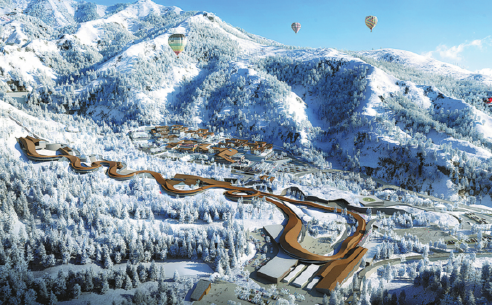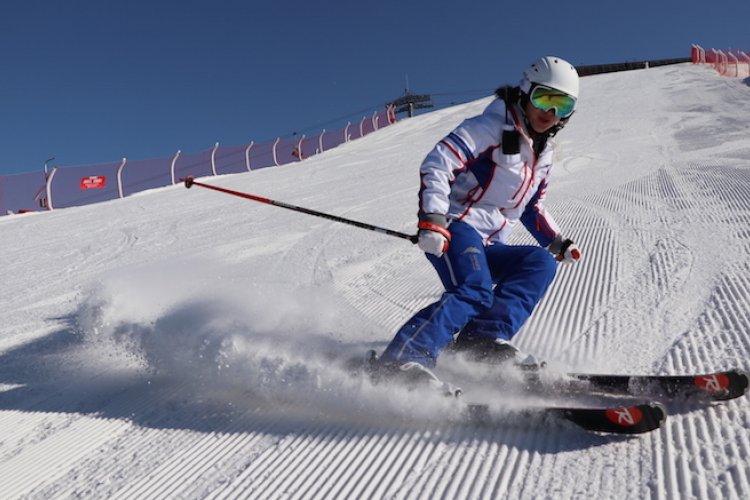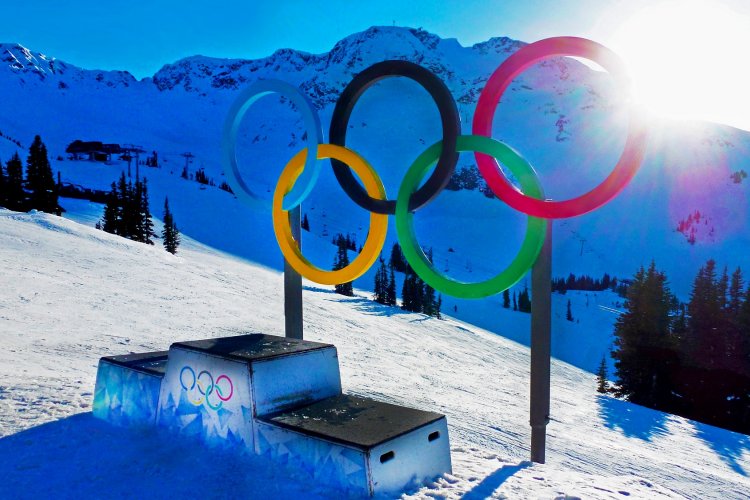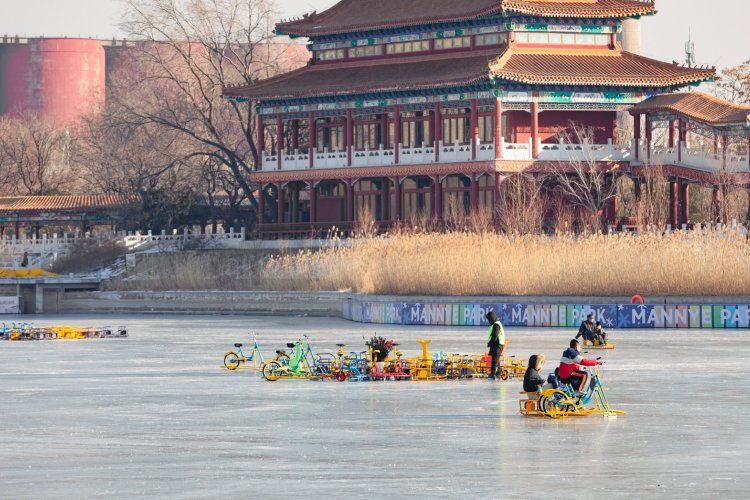OlymPicks: Hebei Slopes Hyped and Zhangjiakou Goes Green
OlymPicks is an ongoing blog series whereby we highlight news, gossip, and developments in the buildup to Beijing's 2022 Winter Olympics.
Even though the Beijing Winter Olympics is still two years away, skiing and snowboarding fervor is already in full swing at what will be a key site for the upcoming Games.
At least that's the sentiment underlying state media coverage of the opening bash for the 2018 skiing and snowboarding season at Genting Resort Secret Garden resort this past weekend. Held in the Beijing-neighboring city of Zhangjiakou, where both snowboarding and freestyle skiing competitions will be held at the 2022 Winter Olympic Games, the event featured everything from appearances by some of snowboarding's biggest stars, to a record-setting number of everyday participants.
Attendance was up to 2,500 skiers and boarders, an increase of 300 over last year's total, according to China Daily. Aside from zipping around in the snow, participants also caught a glimpse of the opening weekends' guests of honor: two-time Canadian Olympic bronze medalist Mark McMorris and a handful of other professional snowboarders like China's Olympic medal winner Liu Jiayu and American veteran Danny Davis (who was voted 2006 Rookie of the Year in the Transworld Snowboarding Riders Poll Awards).
McMorris told reporters: "I've been coming back quite often over the past years and I definitely noticed the sport's growth. This area has developed so much more for the better. Now it looks unreal and they are definitely progressing. It seems there are a lot of people eager to go snowboarding this early in the season, which is really good news."
Davis concurred, adding: "Any time that you come to a resort in November and there are a lot of people out there riding, that's a great sign that snowboarding is alive and well here."
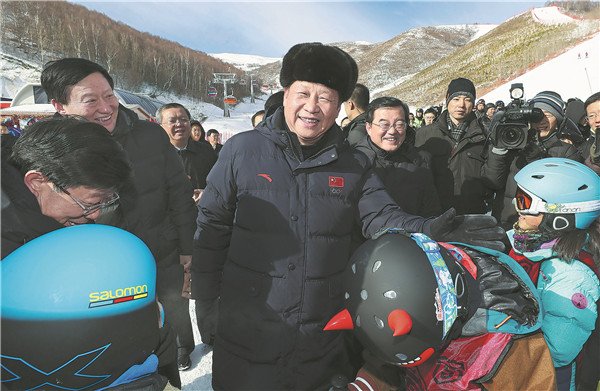
That's certainly the outcome Chinese officials have been hoping for as the 2022 Games loom closer. In January 2017 President Xi Jinping himself made a high profile visit to Zhangjiakou ski resort Chongli, during which he emphasized the benefits of winter sports for China's youth.
All that buildup is coupled with an uptick in infrastructure. The prime example is a high-speed railway network designed to cut down commuting time between the Olympic venue hubs from the current three hour total to a far more convenient 50 minutes. Set to be completed by May 2019, the first track for the high-speed rail was laid this past Friday, which sports blog Inside the Games called "a milestone for the construction of the high-speed link, considered key to Beijing 2022's transport plans." However, it went on to point out that officials refused to disclose the cost of the rail network because they insisted it was "unrelated to the bid" for the Olympics. It has been estimated, however, that the train network was stuck with a RMB 58 billion (nearly USD 8.4 billion) price tag.
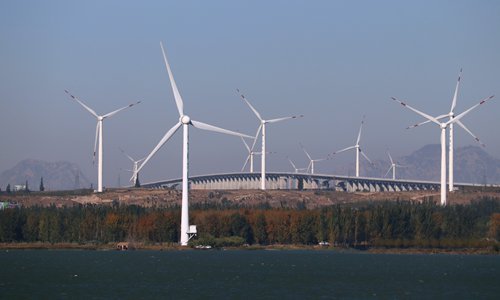
The ripple effect of that development reaches beyond sports. A Global Times article from late last week covered official efforts to outfit Zhangjiakou with wind turbines and hydrogen-powered fuel cell buses. The greater goal is for Zhangjiakou to not only be known as a sporting hotspot but also "China's first energy transition pilot city" at the forefront of the country's environmentally friendly initiative.
If such green energy efforts prove successful, they will be a marked improvement over Beijing's last Olympic go around. Readers will remember that the 2008 Summer Games were marred by bad publicity, with the Telegraph running incendiary headlines like "Beijing Olympics were the most polluted games ever, researchers say" and URMC declaring "Beijing Olympics Provides Rare Window into Air Pollution's Effect on Health."
Based on all that, it looks like officials have far steeper figurative summits to surmount than the mere construction skiing slopes, making those peak all the more lofty and alluring.
More OlymPicks: Why NHL's 2022 Snub Could Rub Hockey's Biggest Player the Wrong Way

